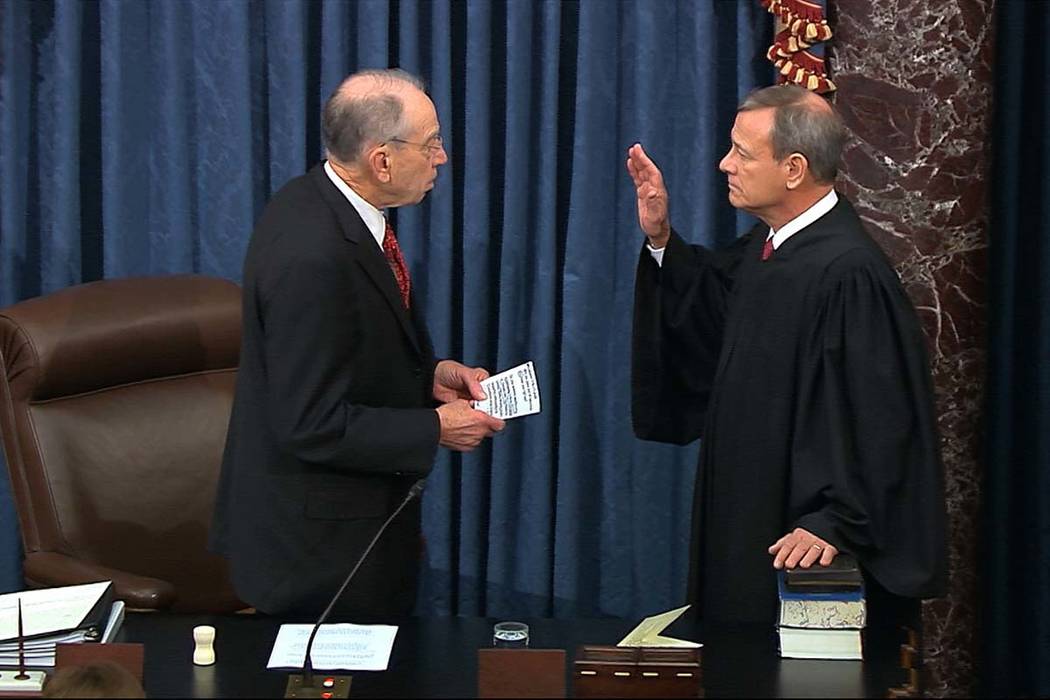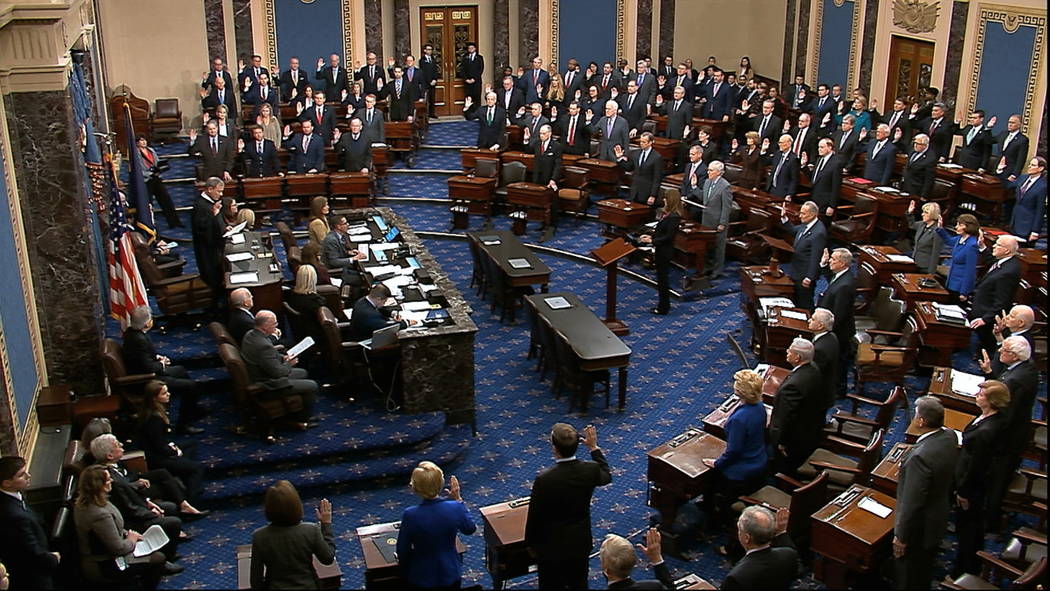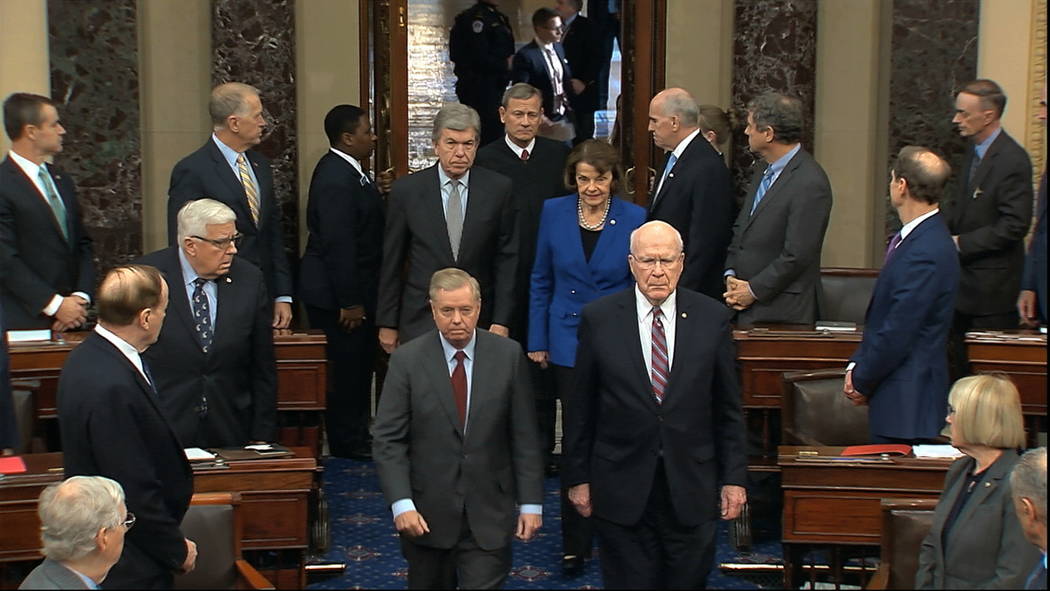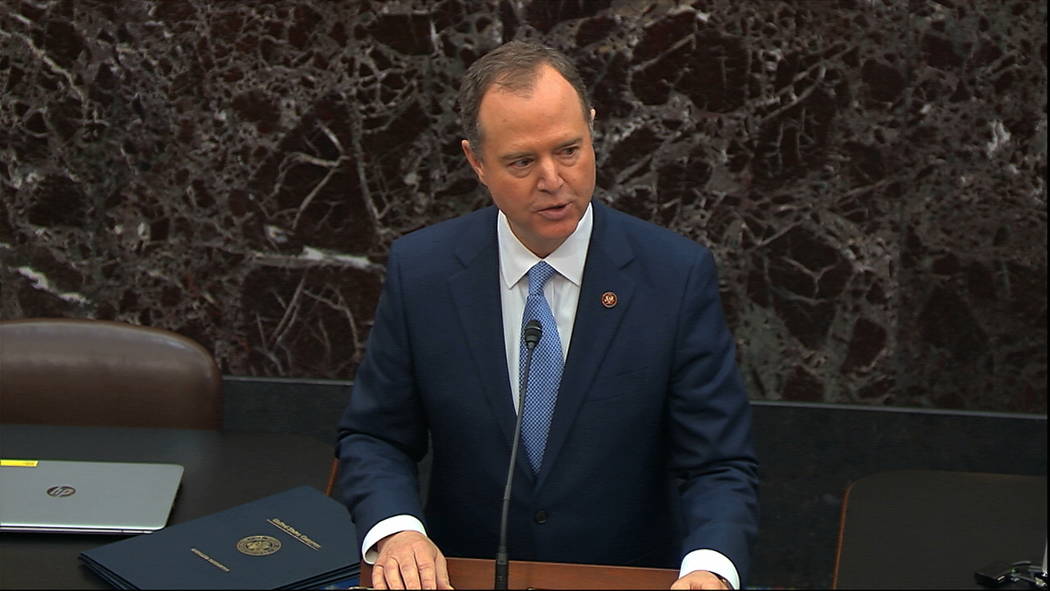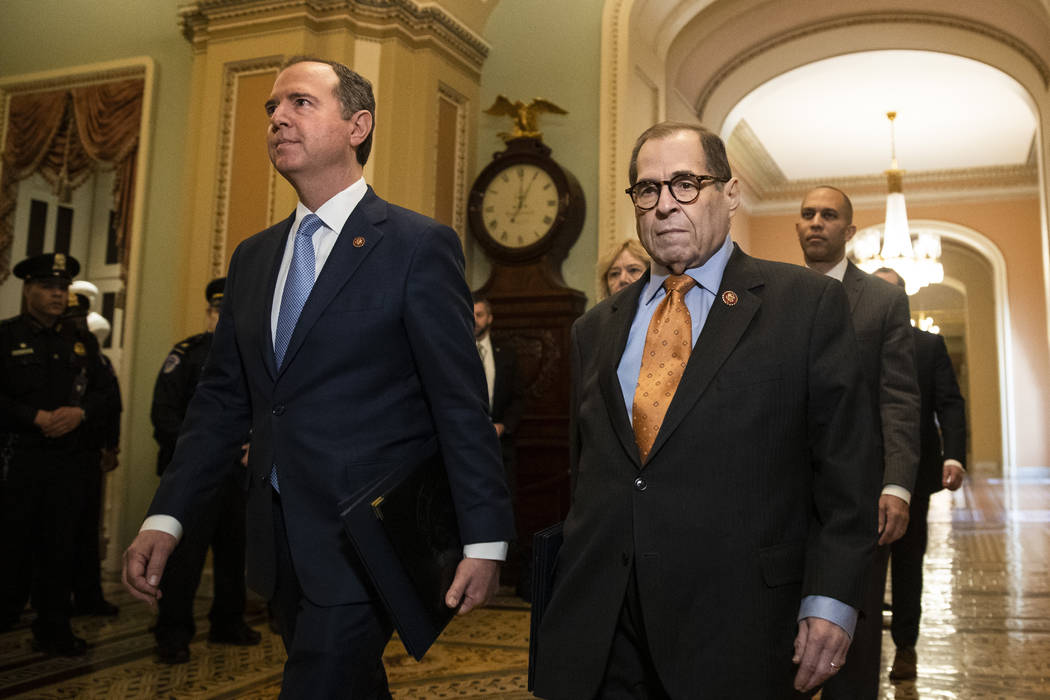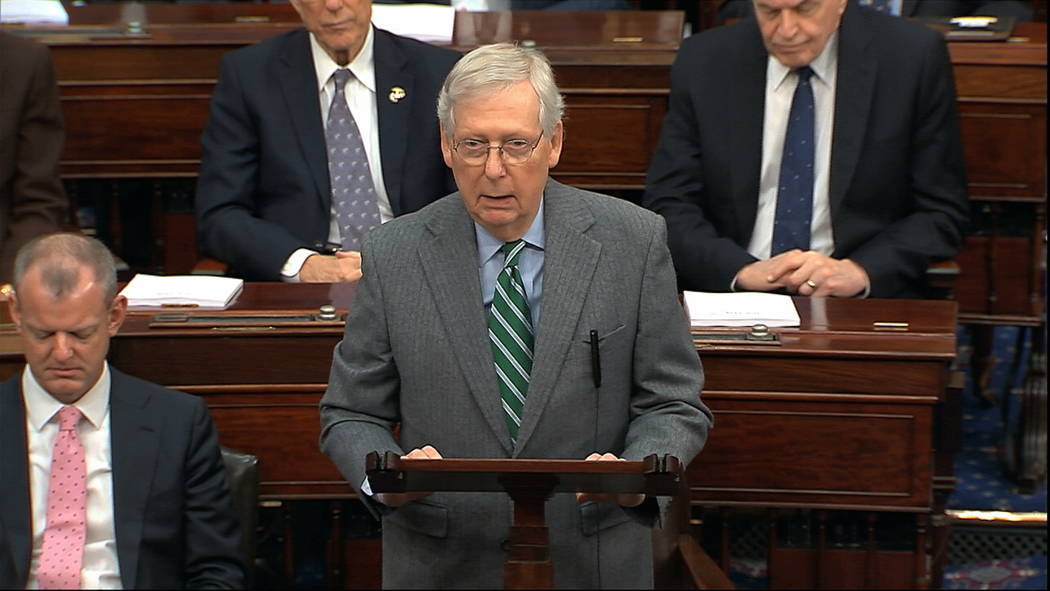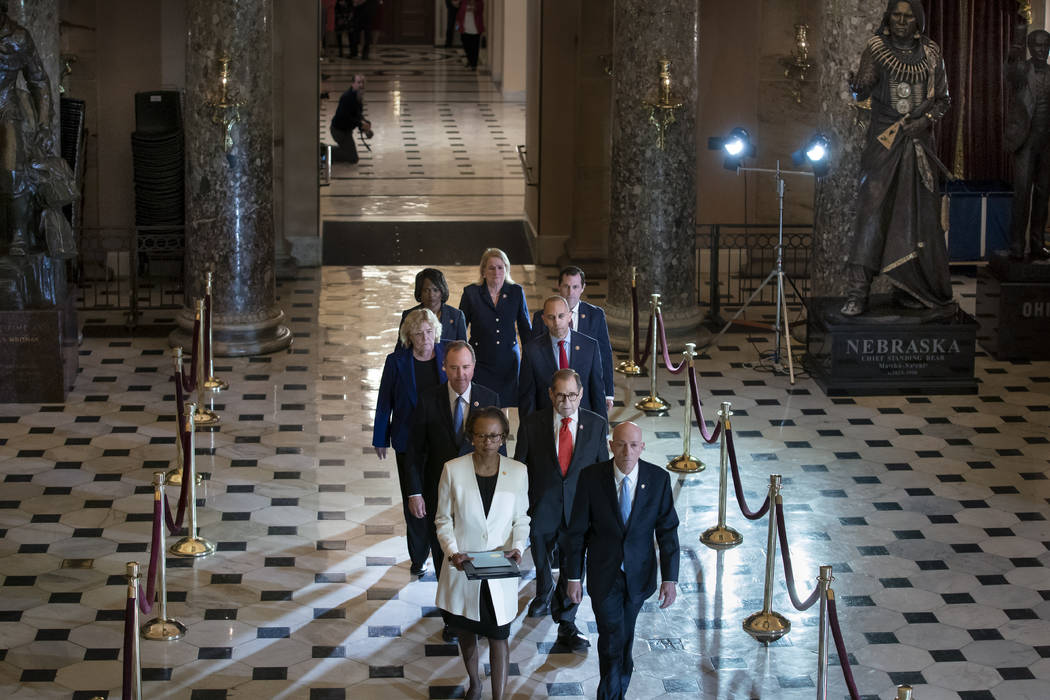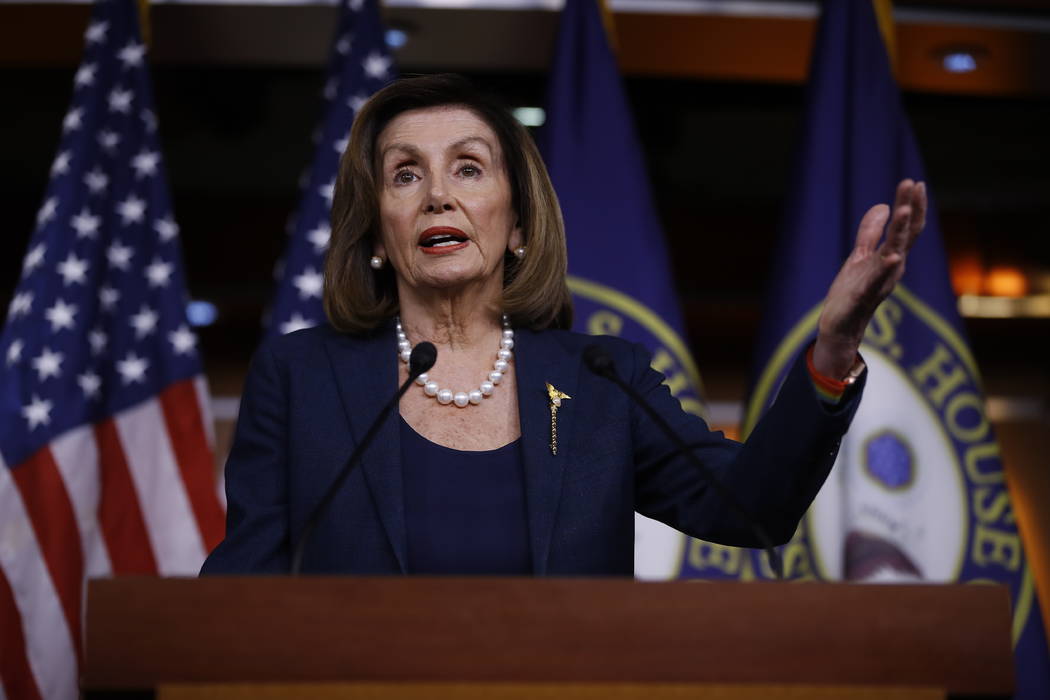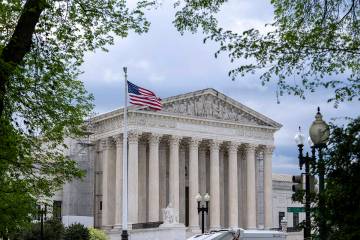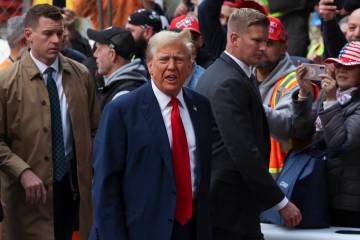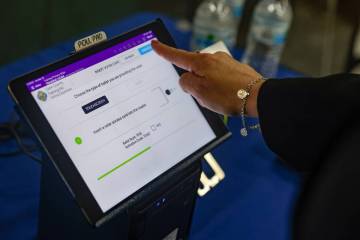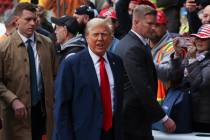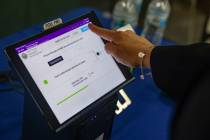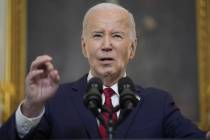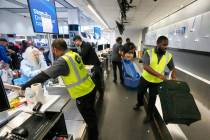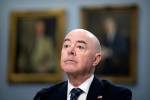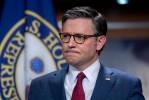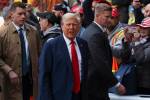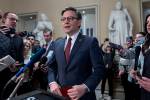Senate begins impeachment trial of Trump
WASHINGTON — The Senate formally opened just the third presidential impeachment trial in U.S. history on Thursday, preparing to consider whether President Donald Trump should be removed from office.
Chief Justice John Roberts presided over the chamber, administering the oath of office in which senators swore to “do impartial justice according to the Constitution and laws.” Senators signed a book to register their oaths.
The Senate trial is expected to last more than five weeks.
Roberts, dressed in his black Supreme Court jurist robe, was escorted to and from the Senate by selected lawmakers in both parties. He will return next Tuesday when the trial begins in earnest.
The House approved two articles of impeachment, which House Intelligence Committee Chairman Adam Schiff, D-Calif., one of the House impeachment managers, read to the Senate before the swearing in.
The president is charged with abuse of office for asking Ukrainian President Volodymyr Zelenskiy to conduct an investigation into former Vice President Joe Biden and his son Hunter, who served on the board of a Ukrainian gas company. The Trump administration was withholding $400 million in military aid from Ukraine at the time.
Trump is also charged with obstruction of Congress for ordering officials not to comply with the House investigation.
‘A big hoax’
Trump has angrily denied the charges and called them “a big hoax.” He accused Democrats of waging a partisan campaign to damage his political standing as the nation heads toward the 2020 election. Moreover, Trump’s defenders say there were entirely legitimate grounds for the president to ask for an investigation of alleged corruption in Ukraine.
The House approved the articles of impeachment in December but only delivered them to the Senate on Wednesday after a vote on a resolution approving seven House managers selected to present the case to the upper legislative chamber.
Senate Majority Leader Mitch McConnell, R-Ky., criticized Democrats and House Speaker Nancy Pelosi, D-Calif., for celebrating the Wednesday vote with souvenir pens and commemorative photographs, similar to a presidential bill-signing ceremony.
“This final display neatly distilled the House’s entire partisan process into one perfect visual,” McConnell said. “‘It was a transparently partisan process from beginning to end.”
“That’s what this process has been thus far,” he added. “But it’s not what it’s going to be going forward.”
But Pelosi’s decision to delay the delivery of the articles of impeachment have led to further discovery of evidence the House wants used in the trial against Trump — developments that could pose political and legal risks for the president.
Rudy Giuliani, Trump’s personal lawyer, worked overseas to pressure Ukrainian officials to launch the political investigation. An indicted associate of Giuliani, Lev Parnas, said in television interviews this week that Trump was aware of, and even headed, the effort to get an investigation into the Bidens.
New information from Parnas has raised pressure on Senate Republicans to allow former national security adviser John Bolton, a harsh critic of Giuliani’s involvement in Ukraine, to testify as a witness. Bolton did not cooperate with the House investigation, but he said he would testify before the Senate under subpoena.
However, Trump said he would invoke executive privilege to block Bolton’s testimony.
GAO says law broken
On Thursday, the Government Accountability Office, the bipartisan auditing arm of Congress, found the Trump administration violated federal law when it withheld the military aid meant to help Ukraine fight Russian-backed separatists. Further, the GAO found the Trump administration’s failure to provide full information on that decision has “constitutional significance.”
Pelosi said the GAO ruling “reaffirmed the president’s cover-up is ongoing and endangers the Constitution.”
Meanwhile, U.S. law enforcement was exploring new information from Parnas about surveillance allegedly conduced on Marie Yovanovitch, then U.S. ambassador to Ukraine, who became an obstacle for a Ukrainian investigation into the Bidens.
She was later fired, and Trump mentioned her by name in his telephone call with Zelenskiy.
“We’ve seen lots come out,” said Senate Minority Leader Chuck Schumer, D-N.Y.
“There’s barely been a week where significant new evidence, further making the House case, hasn’t come out as strong as the House case was to begin with,” Schumer said.
McConnell said he has the votes that would allow the Senate trial to begin without a decision on whether to allow witnesses to testify. The Senate proceeded similarly in the 1999 impeachment trial of President Bill Clinton, who was acquitted.
But Democrats note that three witnesses did appear before the Senate during that trial.
Several Republican senators, including Lisa Murkowski of Alaska, Mitt Romney of Utah, Susan Collins of Maine and Lamar Alexander of Tennessee, said they would be open to witness testimony.
Trump GOP allies in the Senate, including McConnell, have discussed dismissal of the charges against the president.
Votes on dismissal could come as early as Tuesday, though McConnell said earlier in the week that his full Republican conference has no appetite to take up such a measure.
It would take only 51 votes in the GOP-led Senate, where Republicans enjoy a 53-47 majority, to dismiss the charges or approve a motion that would allow witnesses. At the end of the trial, it would take a two-thirds majority, or 67 senators, to vote to remove the president from office, which is unlikely due to the Republican support the president enjoys in the Senate.
Contact Gary Martin at gmartin@reviewjournal.com or 202-662-7390. Follow @garymartindc on Twitter. The Associated Press contributed to this report.



